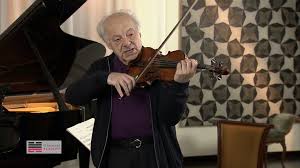Which opera houses can’t pay/won’t pay?
mainWe published shocking testimony from Brazil last week about the San Paulo opera which has not paid some artists for three years.
This is not uncommon in South America and southern Europe.
Since then, we have heard that the Teatro Regio di Torino in Italy (pictured) is not paying some of its guest singers.

Other Italian houses are in a similar position.
If you have not been paid by a major opera house, please let us know.
We’ll compile a chart of stages to avoid.
UPDATE: Maggio Musicale in Florence, long in financial troubles, avoids paying artists if at all possible.





I performed as a soloist with the Orquesta Sinfonica of Buenos Aires in November 2016 and still waiting to get paid …
What is the common practice ? Do soloists, singers, conductors get paid before or after the concert in general ?
Normal procedure (in the US at least) is to get paid after the work is done. You don’t necessarily get a check on your way out the door; there’s often an arrangement like “our money people will be in touch with your manager” and it can take a couple of weeks to get the money. In the meantime, since you’ve fulfilled your part of the contract, you’re expected to have faith that the company will fulfill their part. I guess some companies take advantage of that — knowing the singer will be long out of town by the time it becomes a problem — and probably, like other abusers, they count on their victims’ silence (because who wants to admit they were taken advantage of?) to continue being able to lure in fresh victims.
A friend of mine once told me a story about how her orchestra had a concert with Aretha Franklin. Apparently Ms. Franklin’s fee was to be paid in advance. When she arrived, they gave her a check. “Oh no no,” she said. “I get paid in cash, or I don’t go on.” They had to get a board member who was a bank vice president to get into the bank on a weekend and get the $50,000 (or however much it was) and give it to her in cash. She put it in her purse, walked out on stage, and put her purse on top of the piano where it stayed for the duration of the show.
At the time it sounded like just another standard “crazy diva” story, but now it sounds like she had learned from experience.
The above is 100% inaccurate. In the US, all jobs at AGMA houses involve the singer getting paid per performance, at each performance, normally at intermission. Many non-AGMA companies do that same or pay no later than intermission of the final performance.
OK. Glad to be corrected if I’m wrong.
Not quite accurate. In many major AGMA houses I have been paid only after the run was over and by bank transfer. Perhaps for US based singers it is different but that has always been my experience.
Um…I am guessing most people get paid by bank-to-bank transfer. And this has to be done in Bank opening hours. Most performances are in the evening (or at the weekend).
Hence I think most people get paid in the days (or weeks) after the performance.
It is very common in the world of popular music – especially artists at the upper end – that the full fee is paid in advance, For their arena concerts, Pavarotti, Domingo and Carreras infuvidually used to get substantial cash advances early in negotiations which, if the contracts were not executed by the due date, would be forfeit by the promoter. I have no idea if any classical artists can now get paid any of the fee in advance.
In older days, getting the full fee at the interval was very common – usually in cash.
Good for Aretha!
Geraint Evans got paid cash in the interval at some overseas houses – or he didn’t do the second half! But he had that power….
This is really sharp practice from these opera houses. Principal artists often have to pay accommodation and subsistence for long rehearsal periods for no pay until they perform. To not be paid after the end of the contract means they are massively out of pocket.
It’s no different from any other freelance job. You have no control over if and when your invoice will be paid.
If it happens on UK soil it’s fairly easy to go to a small claims court and obtain a judgment against the negligent party. But performers who pursue an international career also have to work in less friendly jurisdictions.
Presumably it helps to be represented by a major agency as they would have some leverage over the hiring venues (and also do the leg work in chasing up the payments).
When I worked for the New York City Office of Child Support Enforcement one of my tasks was to monitor whether employers were obeying “income execution” (garnishee) orders. The employer was ordered to deduct the child support from an absent parent’s (generally the father’s) salary and send it to us and we would forward it to the custodian (usually the mother) of the employee’s children.
Almost daily I heard book keepers and others say “I’ll try to send the money”. They had deducted the money from the employee’s salary and instead of sending it to us were using it to pay other bills!
The comptroller or owner of the company knows that unlike more aggressive creditors there is little we will do to them.
I strongly suspect that something similar is happening here. The guest artist is not part of the regular payroll and even if money is budgeted for him/her these small arts organizations, especially in third world countries where there is heavy inflation, are frequently in debt. There is only so long that you can sit on the electricity bill or not pay full time employees. So who gets screwed? The guest artist who is leaving town.
Sure, one might be able to get a money judgement but how are you going to collect? The bank accounts of these organizations already have negative balances and they have few assets that actually belong to them.
You have control if you demand cash payment upon arrival. No pay, no show. Otherwise, you are asking for trouble.
Not so many people have that power. Many will be greeted with ‘OK, we’ll find someone else’. And they will.
The Slovak National Theatre in Bratislava has often been in the news for problems paying their artists, and I know first-hand of one who had to take them to court and wait 5 years to receive the fully contracted fee.
We have a saying in the brass playing world for freelance work: no loot, no toot!
I’ve heard a certain well-known festival in Italy which takes place in the fifth month of the year is notorious for not coughing up.
In Sicily, yes…
Not anymore. They paid all debts with artists until 2017, and they are assuring that all pending payments for artists will be done by October 2018.
The time is gone by!
As the Maggio Musicale spokesperson I can say with Chiarot, Luisi (who has already answered) and Conte and in their behalf, that “the past is the past”, and as Violetta sings “addio del passato” we too finally give our farewell to the past: “addio!”.
But unlike her who greets the sweet, happy dreams of her past happiness, we hopefully say adieu to the bad times and look to the future now with concrete optimism.
Debts with artists have been an open wound for The Maggio Fiorentino for years, but today the situation has changed. We pay the artists regularly, we started to pay all the suspended accounts (to be honest, we have some few remnants still to be paid) and by the end of 2018, having returned the budget in an economic balance, we expect to close all positions with everyone.
thank you
In Catania at the Teatro Bellini, guest singers haven’t been paid for years. I know people who have been waiting for three years and more. They also try to get people to go back by saying if you come, we’ll settle your old fees.
Lots of comments about South America here. The reality can vary wildly from one country to another. I have worked all my life in most of the main south American stages and NEVER did I get not paid.
Some countries are spotless, like Chile and Colombia. Buenos Aires is careful with international visitors, it can take a month or so, but they pay. Can’t talk about Sinfónica Nacional, though, I have never conducted them.
Regarding Brazil, the wisest is to have your agent share the commission with a local agency, in order to insure that someone is after the fee, once the artist is gone. If I remember correctly, it is required by Brazilian law anyways.
Cash payments have almost disappeared now. It is nonsense to try to pull that one off.
There seems to be a certain amount here of gloating at the untrustworthiness of overseas companies. Which omits the wholescale non-payment to artists of that company which operated briefly just off the Strand…